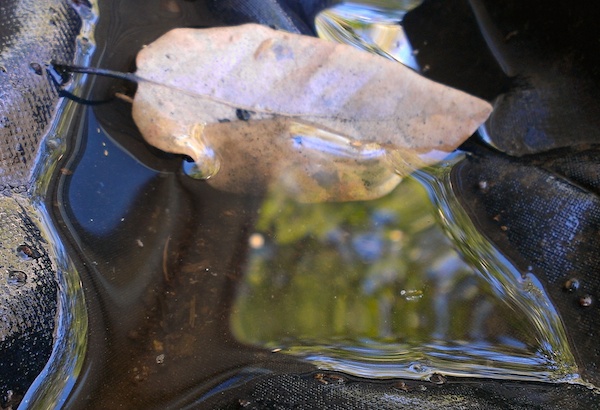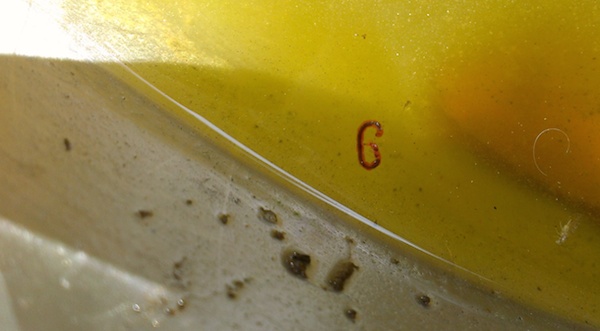Three Must-Dos for Avoiding Mosquito-borne Illnesses

Mosquitoes can breed in as little as a tablespoon of water, so it’s critical to drain all standing water from your yard, including places like barbeque covers. Photo: Thrasher Termite & Pest Control, Inc., 2016
Guest post by Janet Thrasher, President of Thrasher Termite & Pest Control, Inc.
For many of us who’ve grown up in California, dealing with mosquito bites is normal. Today, however, mosquito bites may come with some very serious blood-borne diseases, like Chikungunya virus, Dengue fever, West Nile virus and St. Louis encephalitis. The list of mosquito-borne illnesses in California grows each year. Now, the CDC is warning that Zika virus may be the next mosquito-borne illness to enter the United States. The California Department of Public Health reminds the public to guard against mosquito bites. Unlike controlling pests such as ants, fleas and cockroaches, pest control companies can’t really help with mosquito control beyond offering advice. It’s up to you to reduce the risk of mosquito bites by following the three D’s of mosquito control: Drain, Dunk and Defend.
Drain
It’s critical to drain all standing water around your yard after every storm because mosquitoes can breed in just a tablespoon of standing water. Some places that water collects are obvious: buckets, garbage cans, gutters, flower pots, bottles, saucers, toys, wagons, plastic “kiddie” pools, lids, old tires, pool covers, tarps and barrels. Sometimes you need to get creative to find areas of standing water. Thrasher Termite & Pest Control technicians have found mosquito larvae in the tube of a patio umbrella stand, the pocket formed where a tree branch connects to the main trunk, Frisbees abandoned on the roof of a house, solar garden lights and water puddling inside a downspout diverter. Draining standing water is the single most effective action you can take to keep mosquitos under control.
Dunk
Mosquito dunks are biological controls that are labeled for organic gardening and harmless to honey bees, beneficial insects, pets, and wildlife. Add mosquito dunks to rain barrels and other areas of standing water that you’re reluctant to drain. Pond owners may contact their county’s vector control district for mosquitofish—another very effective control and alternative to mosquito dunks.

Standing water is a perfect environment for mosquito larvae. Photo: Thrasher Termite & Pest Control, Inc., 2016
Defend
Even if you do a great job of eliminating mosquito breeding sites, your neighbors may not. Defend yourself and your family from mosquito bites by taking the following steps:
- Make sure your doors and windows are covered with screens to keep mosquitoes out of your house. Protect cribs with mosquito netting.
- Avoid going outside at dawn and two hours after sunset—that’s when mosquitoes are most active. If you must be outside, cover yourself by wearing loose, long pants; a long-sleeved shirt; and shoes and socks. Protect infants by draping strollers with mosquito nets. (Mosquito netting is available at most stores that sell camping gear.)
- Use a repellent when you go outside. The back of your neck and ears are prime targets for hungry mosquitoes. Follow the directions on the repellent label. The best repellents use DEET or picaridin as the active ingredient.
- Install CO2 mosquito traps with caution. These devices attract mosquitoes from about 100 feet away in order to kill them. In small urban yards, a CO2 mosquito trap may attract mosquitoes from your neighbors’ yards. If you’re between the mosquito and the trap, you could become a meal. CO2 mosquito traps are best used on properties that have one acre of land or more.
To learn more about mosquito control, refer to the website of your county office of vector control. Some vector control districts, such as Alameda County, maintain a mosquito fogging notification email list for residents. Additionally, westnile.ca.gov is an excellent resource for information on mosquito control, and you can report dead birds online to help track the spread of West Nile virus.
Use Diamond Certified Resource to find top rated companies.
Local, Top Rated Diamond Certified Companies Related to Your Topic
Contra Costa County Pest Control Companies
Marin County Pest Control Companies
San Francisco Pest Control Companies
Santa Clara County Pest Control Companies
Santa Cruz County Pest Control Companies
Related Articles
The Homeowner's Guide to Pest Control & Termite Services
Get Expert Advice From Owners of Top Rated Local Companies
Become a Diamond Certified Preferred Member (Always Free)
Find Top Rated Companies in the San Francisco Bay Area